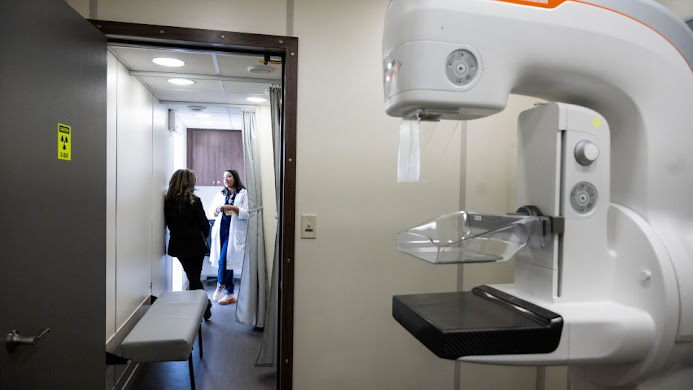New Guidelines for Breast Cancer Screenings: What Women 40 and Older Should Know
Task force updates guidance for breast cancer screenings for women 40 and older
Sarah Reingwirtz/MediaNews Group/Los Angeles Daily News/Getty Images
Getting regular breast cancer screenings is important for women aged 40 and older. Recently, a task force updated its recommendations for mammograms. Let's break down what this means for you and why it's important.
Understanding Breast Cancer Screening:
Breast cancer is a serious health concern for women worldwide. Early detection through screenings like mammograms can significantly improve outcomes by detecting cancer at an early, more treatable stage. Mammograms are X-ray images of the breast tissue used to detect abnormalities, such as lumps or tumors, that may indicate the presence of cancer.
The Role of Task Forces in Healthcare:
Task forces comprised of medical experts regularly review scientific evidence and update guidelines to ensure that healthcare recommendations are based on the latest research and best practices. These guidelines help healthcare providers and patients make informed decisions about preventive care and screenings.
Updated Guidance for Breast Cancer Screenings:
Recently, a task force responsible for setting breast cancer screening recommendations updated its guidelines for women aged 40 and older. The updated guidance includes the following key points:
1. Starting Age for Screenings: The task force recommends that women with an average risk of breast cancer begin regular mammography screenings at age 40.
2. Frequency of Screenings: Women should undergo mammograms every one to two years, depending on individual risk factors and preferences.
3. Continuation of Screenings: Screening should continue as long as a woman is in good health and has a life expectancy of 10 years or more.
Understanding Average Risk:
It's important to note that the updated recommendations apply to women with an average risk of breast cancer. Factors that contribute to average risk include:
• No personal history of breast cancer.
• No significant family history of breast cancer (e.g., first-degree relatives like mother or sister diagnosed with breast cancer).
• No known genetic mutations associated with an increased risk of breast cancer (e.g., BRCA1 or BRCA2 mutations).
Factors Affecting Screening Recommendations:
For women at higher risk of breast cancer due to factors such as family history, genetic mutations, or prior breast abnormalities, screening recommendations may differ. In such cases, healthcare providers may recommend starting screenings earlier, more frequent screenings, or additional imaging tests such as breast MRI.
Importance of Informed Decision-Making:
While mammograms are an essential tool for detecting breast cancer, it's essential for women to engage in informed decision-making regarding screening. Factors to consider include:
1. Benefits: Early detection of breast cancer can lead to more treatment options and better outcomes, including higher survival rates.
2. Risks: Mammograms may produce false-positive results (indicating cancer when none is present) or false-negative results (missing cancer that is present), leading to unnecessary anxiety or delayed diagnosis.
3. Personal Preferences: Women should discuss their individual preferences, concerns, and values with their healthcare providers when making decisions about breast cancer screening.
Conclusion:
Breast cancer screenings are a vital component of preventive healthcare for women aged 40 and older. The updated guidelines from the task force provide valuable recommendations for when and how often women should undergo mammograms. By staying informed about these guidelines and discussing individual risk factors and preferences with healthcare providers, women can make empowered decisions about their breast health and overall well-being.
Disclaimer:
The information provided in this article is for informational purposes only and should not be considered medical advice. While the guidelines discussed offer valuable insights into breast cancer screening recommendations, individual healthcare decisions should be made in consultation with a qualified medical professional. Factors such as personal health history, family history, and individual risk factors may influence screening recommendations.
The views and opinions expressed in this article are those of the author and do not necessarily reflect the official policy or position of any organization. The author and publisher disclaim any liability for any loss, damage, or injury caused by the use or reliance on the information provided herein.
For the original news article detailing the updated breast cancer screening guidelines, please visit here.


.jpeg)



Comments
Post a Comment